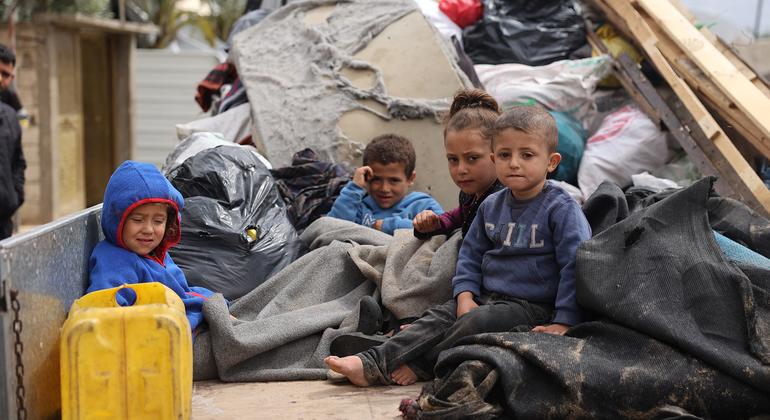Here’s the translation of your text into American English:
—
The General Commissioner of the UN Agency for Palestinian Refugees, Philippe Lazzarini, denounced at the Emergency Ministerial Conference on Palestine held in Bogotá that the current situation in Gaza is not only a humanitarian catastrophe but also represents a crisis for the rules-based international order. Lazzarini emphasized that “entire families, whole neighborhoods, an entire generation are being annihilated in Gaza,” highlighting the severity of the crisis facing the region.
During his speech, he warned against attempts to dismantle UNRWA and weaken the identity of Palestinian refugees. Lazzarini stressed the importance of protecting civilians and allowing humanitarian aid, noting that jeopardizing these elements affects our shared humanity. He also welcomed the establishment of the Hague Group, which seeks to ensure respect for international law and the protection of the Palestinian civilian population.
The conference, chaired by representatives from Colombia and South Africa, brought together over 30 countries, including Brazil, Chile, Spain, Mexico, Nicaragua, Uruguay, and Venezuela. Francesca Albanese, the UN Special Rapporteur for the Occupied Palestinian Territories, highlighted the emergence of a new multilateralism in favor of justice and collective liberation.
In a parallel context, the International Criminal Court confirmed arrest warrants against Israeli Prime Minister Benjamin Netanyahu and Defense Minister Yoav Gallant, rejecting Israel’s request to revoke them. This action comes amidst new evacuation orders in Gaza, displacing tens of thousands of Palestinians. Humanitarian organizations have warned that these evacuations are occurring amid constant bombings, leaving the displaced in critical conditions in the densely populated Al Mawasi area.
The humanitarian crisis has also impacted the health sector. The World Health Organization has raised alarms about the severe shortages of fuel and medical supplies, disrupting vital treatments, such as dialysis. Despite these challenges, the WHO has managed to resume some services at Al-Shifa Hospital thanks to collaboration with various organizations.
Furthermore, the extraordinary situation has triggered a mental health crisis within the population. More than 714,000 people have been displaced in the last three months, dismantling community support structures. Domestic violence and exploitation have increased, particularly affecting women and girls, who are experiencing growing fear in public spaces and temporary shelters. Amal, a displaced mother who has lost ten family members, expressed her anguish over the uncertainty of a future marked by the ongoing airstrikes.
—
Let me know if you need any further assistance!
via: MiMub in Spanish










